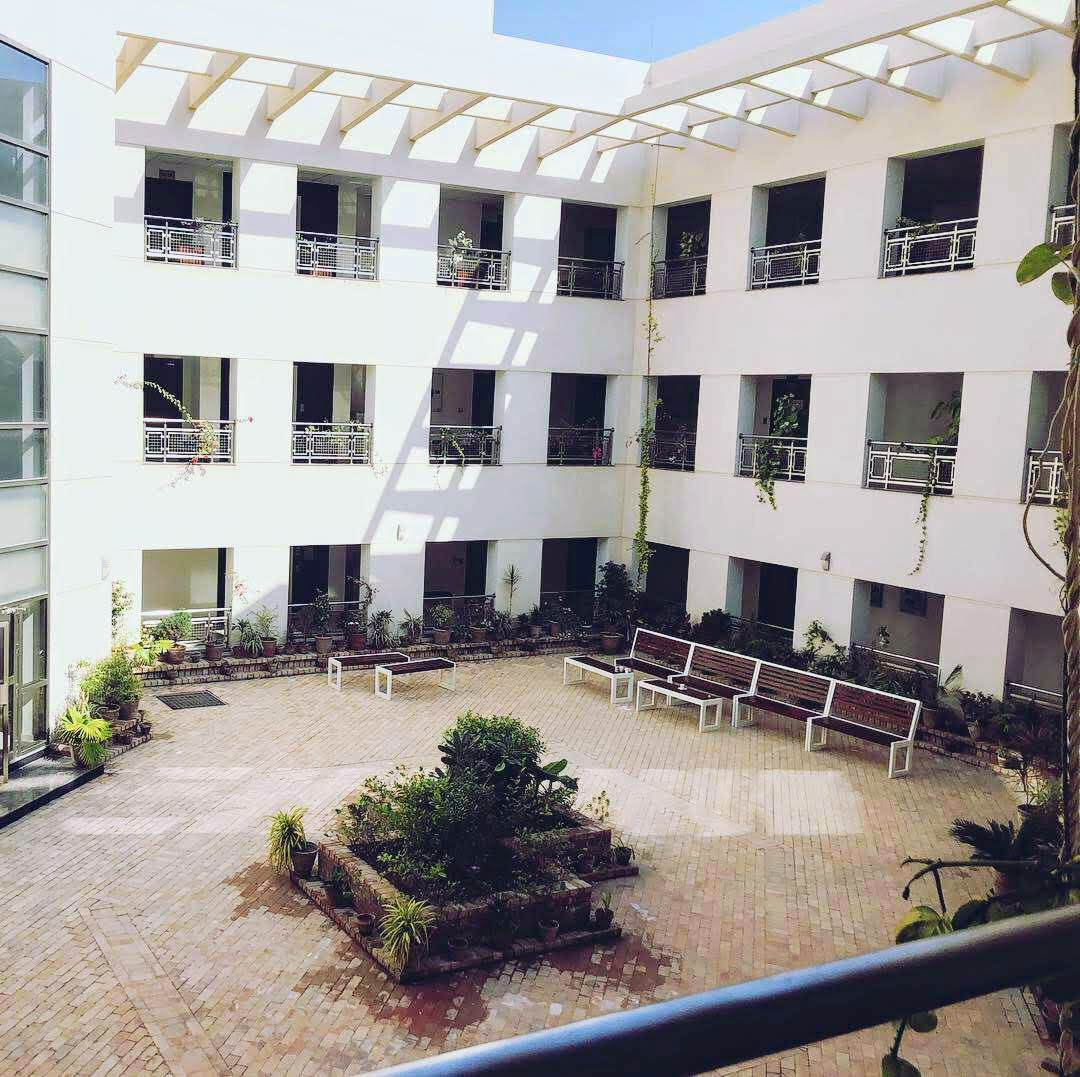
FIELD REPORT
by Maya Silver, USPCASW Writing Instructor
When your visit-to-travel ratio clocks in around 3:2, you make the most of every moment at your destination. After three flights, a rainy stroll through Amsterdam, a whirlwind light rail tour of Dubai, and a long wait at Karachi customs, I arrived at the faculty hostel late Sunday night at Mehran University of Engineering & Technology (MUET) in Jamshoro, Pakistan.
First thing Monday morning—feeling equal parts disoriented, anxious, and excited—I jumped into a week of workshops, meetings, and networking. As these types of trips often do, our week at MUET was characterized by a distorted sense of time. With packed days, the mission snapped by before we could say “salaam” (that's hello, in Urdu), yet in some ways felt like a life en miniature lived in the arid flats of Jamshoro.
Of those arid flats—and the Indus River itself—I saw little. That's because each Mission's chief goal is to impart new knowledge and practices to MUET faculty and students. With only a week to work with, focus is required. That means classroom time, not exploration time, in order to condense what might be a few months of progress into five days.
What set the whole experience apart, however, was the warmth of the MUET community and the hive-like design of the center itself. The latter may seem a minor detail, but it's not. The building for the U.S. Pakistan Center for Advanced Studies in Water (USPCASW) consists of four circular hallways stacked atop one another, all revolving around an inner courtyard. This circular design breeds social interaction. Time and time again, I'd hear someone call my name to set up a meeting, run into a student with a question, or chat with a professor en route to the bathroom.
The inner courtyard at MUET is also a place where students and faculty can convene for meals or meetings, and it plays no small part in cultivating community. While our official agendas occasionally labeled twice-daily tea times as “Networking Breaks,” they proved to be much more than that. Sharing a cup of milky tea with a professor or a student helped us understand each individual's challenges and hopes, drove home the importance of USPCASW's work, and, ultimately, resulted in new friendships sustained through WhatsApp conversations.

All of this is why, if I had to sum up the December 2018 mission in a word, it would be “reciprocity.” In her book Braiding Sweetgrass, Robin Wall Kimmerer describes the ideal relationship between humans and the world as a “chain of reciprocity.” We must “take only what is given … use it well … be grateful for the gift, and … reciprocate the gift.”
I knew that it was the intention of the University of Utah team to share knowledge in order to further the USPCASW mission of increasing water security. What I didn't expect was the gifts we'd receive in return. As is customary, we were the recipients of glittering purses and bangles. But what's more, our MUET hosts warmly welcomed us to Pakistan with their honesty and engagement. They shared with us the exciting scope of studies underway and offered feedback for how we could improve our end of the partnership. “Thank yous” littered every conversation, and everyone wanted to know when we would return next, and how we liked the country so far. These were the expressions of gratitude for a partnership—a reciprocity—forged across nearly 8,000 improbable miles.
________
As Writing Instructor for USPCASW at The University of Utah Water Center, Maya Silver trains scientists and engineers from Pakistan in professional and academic writing. She recently returned from the 13th USPCASW Mission, during which she delivered a set of training workshops at Mehran University of Engineering and Technology (MUET) in Pakistan to further empower faculty in English language writing.
